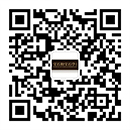Laboratory Identification Characteristic of Purple Jadeite
-
摘要: 近来,紫色翡翠的检测越来越繁杂,缺乏系统流程。通过收集市场常见的紫色翡翠样品(包括天然翡翠、经漂白充填染色处理翡翠、染色处理翡翠),对其进行红外光谱、超景深显微镜、DiamondViewTM和紫外-可见分光光度计等多种仪器测试分析。结果表明,经漂白充填染色处理翡翠样品的中红外光谱具3 056、3 035、2 872 cm-1等人工树脂充填物引发的吸收峰,部分染色处理翡翠样品的近红外光谱具有4 327、4 257 cm-1甲基、亚甲基吸收峰,提示有机物的存在;超景深显微镜观察显示,染色处理翡翠样品中的染料在表面呈颗粒状分布,内部呈脉状分布,富集在裂隙或凹陷处;DiamondViewTM下,经漂白充填染色处理翡翠样品和染色处理翡翠样品具有呈团块状紫色、紫红色荧光分布于蓝色、绿色基底上或仅见蓝色脉状荧光;紫外-可见分光光谱结果显示,染色处理翡翠样品出现以560、600 nm或以550、590、650 nm为中心的吸收谱带。通过以上特征可以将天然、经漂白充填染色处理、染色处理的紫色翡翠鉴别开来,从而制定一套检测流程, 为实验室准确、快速、无损鉴别紫色翡翠提供可行性依据。Abstract: Recently, the identification of purple jadeite has become more and more complicated and lacks of a systematic process. Common purple jadeite samples (including natural jadeite, bleached, filled and dyed jadeite, dyed jadeite) were collected from the market for infrared spectroscopy, ultra-depth-of-field microscope, DiamondViewTM, UV-Vis spectrophotometer and other instruments tests and analyses. The results show that in the infrared spectrum, the bleached, filled and dyed samples in the mid-infrared region show absorption peaks caused by artificial resin fillings at 3 056, 3 035, and 2 872 cm-1. Some dyed samples in the near-infrared region have 4 327 cm-1and 4 257 cm-1-CH3 and -CH2- absorption peaks, which indicates the existence of organic matter. Dyed jadeite samples under super-depth-of-field microscope show that the dyes distribute in granular form on the surface, and vein in the interior and concentrate in cracks or depressions. Under DiamondViewTM, bleached, filled and dyed samples and dyed samples show purple and purple-red fluorescence in clumps distribute on the blue and green substrates, or only blue vein-like fluorescence can be seen. Under UV-Vis spectrophotometer, the dyed samples show absorption bands centered at 560, 600 nm or 550, 590, 650 nm. These characteristics can distinguish bleached, filled and dyed jadeite samples and dyed jadeite samples from natural samples. On this basis, the laboratory identification process can be optimized to provide a feasible basis for the laboratory to accurately, quickly and non-destructively identify purple jadeite.
-
Keywords:
- purple jadeite /
- dyeing treatment /
- spectral characteristic
-
-
表 1 有代表性的翡翠测试样品的特征
Table 1 Characteristics of representative jadeite testing samples
样品号 检验结论 备注 说明 形状 N-01 翡翠 A货 雕件 N-02 翡翠 A货 手镯 N-03 翡翠 A货 雕件 BC-04 翡翠(处理) 经漂白、充填、染色处理 B+C货 异形弧面 BC-05 翡翠(处理) 经漂白、充填、染色处理 B+C货 手镯 C-06 翡翠(处理) 染色处理 表面粒隙间有大量抛光粉,且明显影响其颜色 手镯 C-07 翡翠(处理) 染色处理 C货 块件 C-08 翡翠(处理) 染色处理 C货 块件 C-09 翡翠(处理) 染色处理 C货 平安扣 C-10 翡翠(处理) 染色处理 C货 梯形弧面 C-11 翡翠(处理) 染色处理 C货 平安扣 -
[1] 彭文世, 刘高魁. 矿物红外光谱图集[M]. 北京: 科技出版社, 1982. Peng W S, Liu G K. Atlas of mineral infrared spectra[M]. Beijing: Science and Technology Press, 1982. (in Chinese)
[2] 亓利剑, 袁心强, 彭国桢, 等. 翡翠中蜡质物和高分子聚合物充填处理尺度的判别[J]. 宝石和宝石学杂志(中英文), 2005, 6(3): 1-6, 51. https://www.cnki.com.cn/Article/CJFDTOTAL-BSHB200503000.htm Qi L J, Yuan X Q, Peng G Z, et al. Identification of filling treatment scale of wax & polymer in jadeite jade[J]. Journal of Gems & Gemmology, 2005, 6(3): 1-6, 51. (in Chinese) https://www.cnki.com.cn/Article/CJFDTOTAL-BSHB200503000.htm
[3] 郭立鹤, 韩景仪, 罗红宇. 宝石的红外反射光谱及红外光谱鉴定系统[J]. 岩石矿物学杂志, 2006(4): 349-356. https://www.cnki.com.cn/Article/CJFDTOTAL-YSKW200604013.htm Guo L H, Han J Y, Luo H Y. Identification System of infrared reflectance spectra and infrared spectra of gemstones[J]. Journal of Petrology and mineralogy, 2006(4): 349-356. (in Chinese) https://www.cnki.com.cn/Article/CJFDTOTAL-YSKW200604013.htm
[4] 中国质量检验协会. 珠宝玉石鉴定红外光谱法: T/CAQI 73-2019[S]. 北京: 中国标准出版社, 2019. China Quality Inspection Association. Identification of jadeite, Infrared spectroscopy: T/CAQI 73-2019[S]. Beijing: China Standard Press, 2019. (in Chinese)
[5] 李晓静. 常见宝石的近红外光谱研究[D]. 昆明: 昆明理工大学, 2016. Li X J. Study on near infrared spectra of common gemstones[D]. Kunming: Kunming University of Science and Technology, 2016. (in Chinese)
[6] 苏隽, 陆太进, 李立从, 等. 祖母绿充填物的漫反射近红外光谱分析[A]. 中国珠宝首饰学术交流会论文集[C]. 北京: 国土资源部珠宝玉石首饰管理中心(NGTC)、中国珠宝玉石首饰行业协会, 2013: 3. Su J, Lu T J, Li L C, et al. Diffuse reflectance near infrared spectroscopic analysis of emerald fillers[A]. Selected papers of China Jewelry Academic Exchange Conference[C]. Beijing: National Gems & Jewelry TechnologyAdministrativ Center(NGTC), China Jadeite Jewelry Industry Association, 2013: 3. (in Chinese)
[7] 袁心强. 翡翠的颜色特征及染色翡翠的鉴别[J]. 中国宝玉石, 2008(3): 102-104. https://www.cnki.com.cn/Article/CJFDTOTAL-GBYS200803026.htm Yuan X Q. Color characteristics of jadeite and identification of dyed jadeite[J]. Chinese Gemstones, 2008(3): 102-104. (in Chinese) https://www.cnki.com.cn/Article/CJFDTOTAL-GBYS200803026.htm
[8] 张蓓莉. 系统宝石学[M]. 2版: 北京: 地质出版社, 2006. Zhang B L. Systematic Gemmology[M]. Second edition. Beijing: Geology Press, 2006. (in Chinese)
[9] 李曦. 缅甸紫色翡翠的致色机理及影响因素研究[D]. 北京: 中国地质大学, 2012. Lee X. Study on coloration mechanism and influencing factors of purple jadeite jade from Myanmar[D]. Beijing: China University of Geosciences, 2012. (in Chinese)
[10] 袁心强, 亓利剑, 杜广鹏. 缅甸翡翠紫外-可见-近红外光谱的特征和意义[J]. 宝石和宝石学杂志(中英文), 2003, 4(4): 11-16. https://www.cnki.com.cn/Article/CJFDTOTAL-BSHB200304003.htm Yuan X Q, Qi L J, Du G P, et al. UV-Vis-Nir spectra of jadeite jade from Myanmar[J]. Journal of Gems & Gemmology, 2003, 4(4): 11-16. (in Chinese) https://www.cnki.com.cn/Article/CJFDTOTAL-BSHB200304003.htm
[11] 韩文, 刘洋, 张钧, 等. 两种类型天然紫色翡翠的致色机理[J]. 矿物学报, 2020, 40(5): 549-555. https://www.cnki.com.cn/Article/CJFDTOTAL-KWXB202005003.htm Han W, Liu Y, Zhang J, et al. Colouration mechanism of two types of natural purple jadeite jade[J]. Journal of Mineralogy, 2020, 40(5): 549-555. (in Chinese) https://www.cnki.com.cn/Article/CJFDTOTAL-KWXB202005003.htm
[12] 赵亮. 不同氧化物掺杂体系下硅酸铝钠硬玉的高温高压合成与表征[D]. 长春: 吉林大学, 2020. Zhao L. Synthesis and characterization of alumina-sodium jadeite doped with different oxides under high temperature and high pressure[D]. Changchun: Jilin University, 2020. (in Chinese)




 下载:
下载:









